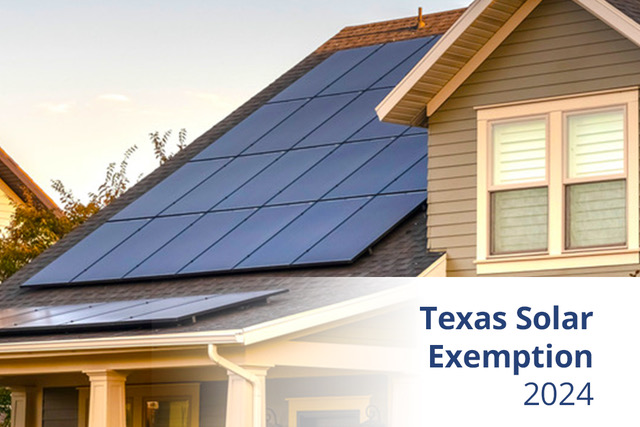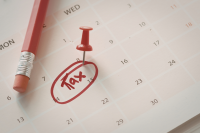Am I Eligible for A Solar Property Tax Exemption on My Texas Property?

Here’s what you need to know about the solar property tax exemption in Texas:
- The Texas Renewable Energy Systems Property Tax Exemption waives 100% of the increased appraised property value due to adding certain solar energy devices.
- Solar systems must be owned and primarily used for the production and distribution of energy used on-site in order to be eligible for the exemption.
- Submit Form 50-123 with supporting documents to the local county appraisal district no later than April 30th of the desired exemption year.
- Gill, Denson & Company can protest your property value with the county, addressing incorrectly valued solar installations and other miscalculations on your property tax bill.
The Texas Solar Property Tax Exemption
Harnessing the sun’s energy isn’t just an environmental win; it’s also a strategic move with potential property tax benefits. The Texas Renewable Energy Systems Property Tax Exemption offers a compelling advantage for both commercial and residential property owners. Any increase in your property’s appraised value due to certain solar energy systems is 100% exempt from property taxes. That means you can enjoy higher property value and clean energy benefits without worrying about a higher property tax bill!
Eligibility for the Exemption
To be eligible, the solar system must be owned, not rented, and primarily used for producing and distributing energy used on-site (Tax Code Section 11.27). The Tax Code defines solar energy devices as those that convert solar energy into thermal, mechanical, or electrical energy or store or distribute the converted energy. Eligible systems include solar photovoltaic panels for electricity generation and solar thermal energy devices, such as solar water heaters or solar swimming pool heaters.
How to Claim the Benefits
Apply for the solar property tax exemption by submitting Form 50-123 to the county appraisal district (CAD) where the property is located. Be sure to apply no later than April 30th of the year you want the exemption to apply. Include relevant documents such as photos and invoices (if available) and a copy of the rendition for business personal property. The chief appraiser may request additional information, which you will then have 30 days to provide.
Beyond Solar: Maximize Your Tax Savings by Preventing Errors
While a solar property tax exemption is fantastic, its impact diminishes if your tax bill is miscalculated. Many CADs use mass appraisal methods that rely on outdated or incorrect data, potentially resulting in higher property taxes. Overlooking value-affecting differences, including solar installations in error, or overvaluing compared to neighbors can significantly affect your tax burden. Correct these and other discrepancies by protesting the appraised value with the county. The property tax protest experts at Gill, Denson & Company can provide valuable guidance and support throughout the process.
If you suspect an inaccurate residential or commercial property valuation, don’t hesitate to reach out to us. Get started with Gill, Denson, & Company today, and make sure you’re only paying your fair share of the tax burden!









